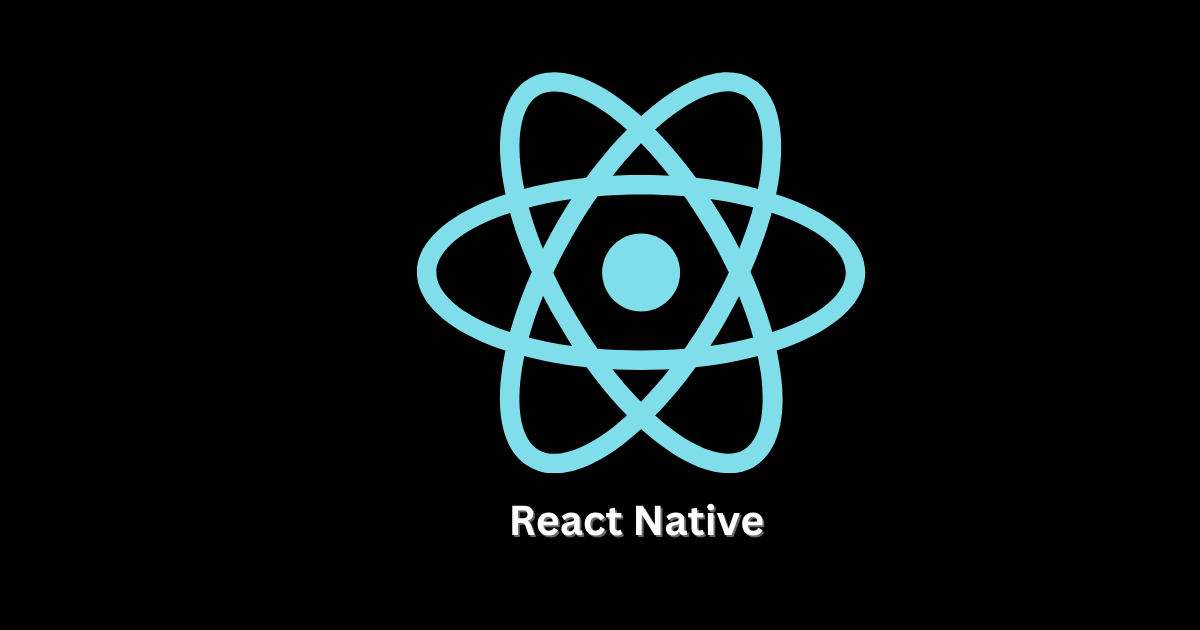React Native Developer: The Complete Guide
Suppose you’ve been keeping up with the latest in mobile app development. In that case, you may have heard about a technology called React Native.
If you’ve ever heard of React Native, you might have wondered what it is and what a react native app developer does. In this blog post, we will answer all those questions and more! So if you’re curious about React Native developers, read on!
What is React Native?
React Native is a mobile application development framework created by Facebook. It allows developers to create high-quality, cross-platform mobile applications using JavaScript programming language. It has quickly become one of the most popular frameworks for mobile app development.
Features of React Native
React Native has quickly become one of the go-to mobile bundles for developers looking to react quickly and create dynamic applications. Building on the React Javascript framework, React Native provides powerful features such as absolute control of UI components, tools to streamline view management processes, and a wide range of native APIs.
Plus it can be used in both iOS and Android apps with a simple React native developer command. It’s easy to see why React Native is one of the most popular development choices right now!
Is React & React Native Different?
React and React Native have a lot of similarities, but there are still enough differences for them to be considered distinct technologies. React is a popular JavaScript library that developers use to build user interfaces.
React native is more specific and differs in that it enables react developers to create applications for mobile platforms like iOS and Android. As such, react native developers need to have a firm knowledge of react and its tools since react native relies on react components.
Ultimately, react and react native are two sides of the same coin, however, they require different skill sets, with development strictly suited for react or react native.
Who are React Native Developers? 
React Native developers are software engineers who specialize in developing mobile applications and software development using the React Native framework. They have expertise in writing code for both Android and iOS devices. They use their knowledge of the latest technologies to build powerful, efficient apps that provide users with an enjoyable experience.
React Native isn’t a language that you can pick up overnight. There are certain skills required to become a proficient React Native developer. Let’s take a look at what it takes to get started in this field.
What Makes React Native Powerful? 
One of the main reasons why React Native has become so popular among developers is its versatility. It can be used to create both native as well as cross-platform apps. This means you can use the same codebase to create an app for iOS and Android. This makes it much faster and easier to develop mobile apps, which saves time and money in the long run.
Not only that, but React Native also has an extensive library of UI components that make it easy to create stunning user interfaces without having to write any custom code. This means you can create high-quality user experiences without investing heavily in design resources. And because the UI components are written in JavaScript, they are compatible with both iOS and Android operating systems.
Another great thing about React Native is its scalability. It’s designed from the ground up to handle large amounts of data without slowing down or crashing. This makes it ideal for large-scale projects such as enterprise applications or social media networks where millions of users could interact with your app at any given moment.
In conclusion, a React Native developer is someone who develops high-quality mobile applications using the React Native framework. They specialize in coding apps that run on Android and iOS devices while utilizing best practices to ensure everything runs smoothly across multiple platforms. If you’re looking for somebody skilled in this area, then look no further than a certified React Native developer!
Skills Required for React Native Development
React Native is an open-source, JavaScript framework for mobile application development. It was released by Facebook in 2015, and has since become the go-to language for many developers. If you’re looking to become a React Native developer, there are some skills you will want to brush up on before taking the plunge. Let’s take a look at what it takes to be a successful React Native developer.
1. Mobile App Development Experience
Although React Native is designed to simplify mobile development, it’s still helpful to have some experience with native app development before getting involved with React Native development.
In particular, experience with Android Studio or Xcode—the two main platforms used for developing mobile apps—will come in handy when using React Native as they are both compatible with the platform.
Understanding how these platforms work will provide invaluable insight into how different elements interact and fit into the overall development process.
2. User Interface Design Skills
React Native makes it easy for developers to build robust user interfaces across multiple platforms. However, having at least some design chops will go a long way when crafting those user experiences. Knowing how components can be best utilized together and which design principles should be followed when building interfaces can make all the difference between a good UI and a great UI.
It also helps developers craft more intuitive experiences that customers appreciate, therefore increasing customer satisfaction and engagement levels.
3. JavaScript/ES6 and React Library Knowledge
React Native developers need strong knowledge of Javascript/ES6 and the React library. This includes understanding how components work, the component life cycle, props and state management, and more. Additionally, knowing how to debug applications with tools like Chrome DevTools is important as well.
4. Familiarity with Platform Specific Design Guidelines
While both iOS and Android have their own guidelines, when it comes to design (e.g., iOS Human Interface Guidelines), familiarity with these guidelines is essential for any React Native developer working on either platform.
This means understanding how color schemes should be used, how animations should be designed for each platform, as well as understanding the typography of each platform.
5. App Performance Optimization Skills
As mobile applications become increasingly complex and feature-packed, app performance can suffer if not optimized correctly. As such, optimization skills are key for any mobile developer—especially those working in React Native. The skills include leveraging native libraries where appropriate, using caching techniques to reduce loading times, improving code readability and reducing memory consumption; all of which can improve an app’s performance significantly.
Responsibilities of a React Native Developer 
1. React Native developers are responsible for building creative user interfaces (UIs)
Ensuring seamless integration with external APIs, debugging code for potential issues, and developing engaging features that make applications stand out from the competition. They may also be expected to write automated tests and deploy apps on various platforms like Google Play Store and Apple App Store.
Additionally, brands hire react native developers to work closely with UI/UX designers or other team members to ensure that all elements are working correctly together within the app’s design framework.
2. Builds applications using the JavaScript programming language and the React library
These developers use their knowledge of the latest web technologies to create high-performing applications that can run on multiple platforms, such as iOS and Android devices. All level developers must also have an understanding of server-side languages like NodeJS and be familiar with database technologies such as SQL or NoSQL.
3. To develop a successful React Native application
Developers must begin by understanding the key concepts behind the framework, such as its component structure, routing system, and data flow. They also need to have an in-depth knowledge of JavaScript, HTML5/CSS3, C# .NET Framework/Core, and other related web technologies used in mobile application development.
In addition to technical expertise, strong communication skills are essential for success in this role since collaboration between stakeholders is a must throughout the entire development process.
5 Best Reach Native Development Tools:
1. Visual Studio Code
Visual Studio Code is a must-have tool for any react native developer. With VS Code, react native developers can efficiently code and debug apps on their own devices, which leads to faster react native development. Writing code with VS Code is easy thanks to its features such as IntelliSense, syntax highlighting, and snippets.
It lets users develop in a wide range of languages – from JavaScript to TypeScript – and also facilitates easy integration with Azure services such as Visual Studio App Center. Their debugging tools allow app developers to easily preview their react native apps with live reloading. Overall, the Visual Studio Code tool is an indispensable asset for creating robust react native applications more quickly.
2. Flipper
Do you want to become a react native developer but don’t know where to start? Flipper is here to help! It’s the perfect tool for react native development, providing an easy-to-use platform and solid documentation to get you quickly onto the react native development track.
Create apps faster, with increased efficiency and performance, not only for react native but for other major frameworks such as iOS and Android. Get up and running in no time and efficiently manage all stages of your react native development process using Flipper’s comprehensive set of tools.
Rely on its stack of resources, tutorials and community support to stay one step ahead in react native development – more confident, productive and connected. Get started with Flipper today and unlock new possibilities!
3. React Native Debugger
React Native Debugger is a must-have tool for react native developers! It is an easy-to-use interface that helps you manage current react native projects and debug your code. If you’re looking to build robust apps with react native, this debugger has advanced features to help streamline the development process.
Some features include inspecting elements of react tree and performance profiling, enabling users to identify issues quickly and reduce debugging time. You can also use it to check react elements, efficienty trace data flow, simulate states, monitor networking activity and more – making React Native Debugger essential for react native development.
4. Redux
If you’re a react native developer, you’ve undoubtedly heard of Redux. It’s a popular state management library used to build react applications and react libraries – including react native! Redux is designed to help react native developers manage the application’s state – essentially, any data that gets modified within an app in response to user events or API calls.
Redux leverages JavaScript objects and functions for an efficient way of keeping track of changes throughout your entire application, allowing you to easily debug errors as well as quickly making updates.
Furthermore, it offers other advantages such as code consistency and scalability which will save react native developers time and energy. So if you haven’t already integrated the Redux architecture into your react applications, now might be the best time to get started!
5. Expo
If you’re a react native developer looking to up your game, Expo could be the perfect place to start. It’s a platform that provides an all-in-one approach to react native development. With Expo, you get access to some powerful features like asset loading and live reloading, cloud build services, and even push notifications.
Not only that, it provides a great development environment with command-line tools and instant access to dev parts of the app. As a react native developer, there are plenty of reasons to check out Expo – so what are you waiting for? Get started building your react native app today!
It offers an excellent development environment with command-line tools and immediate access to the app’s development components.













